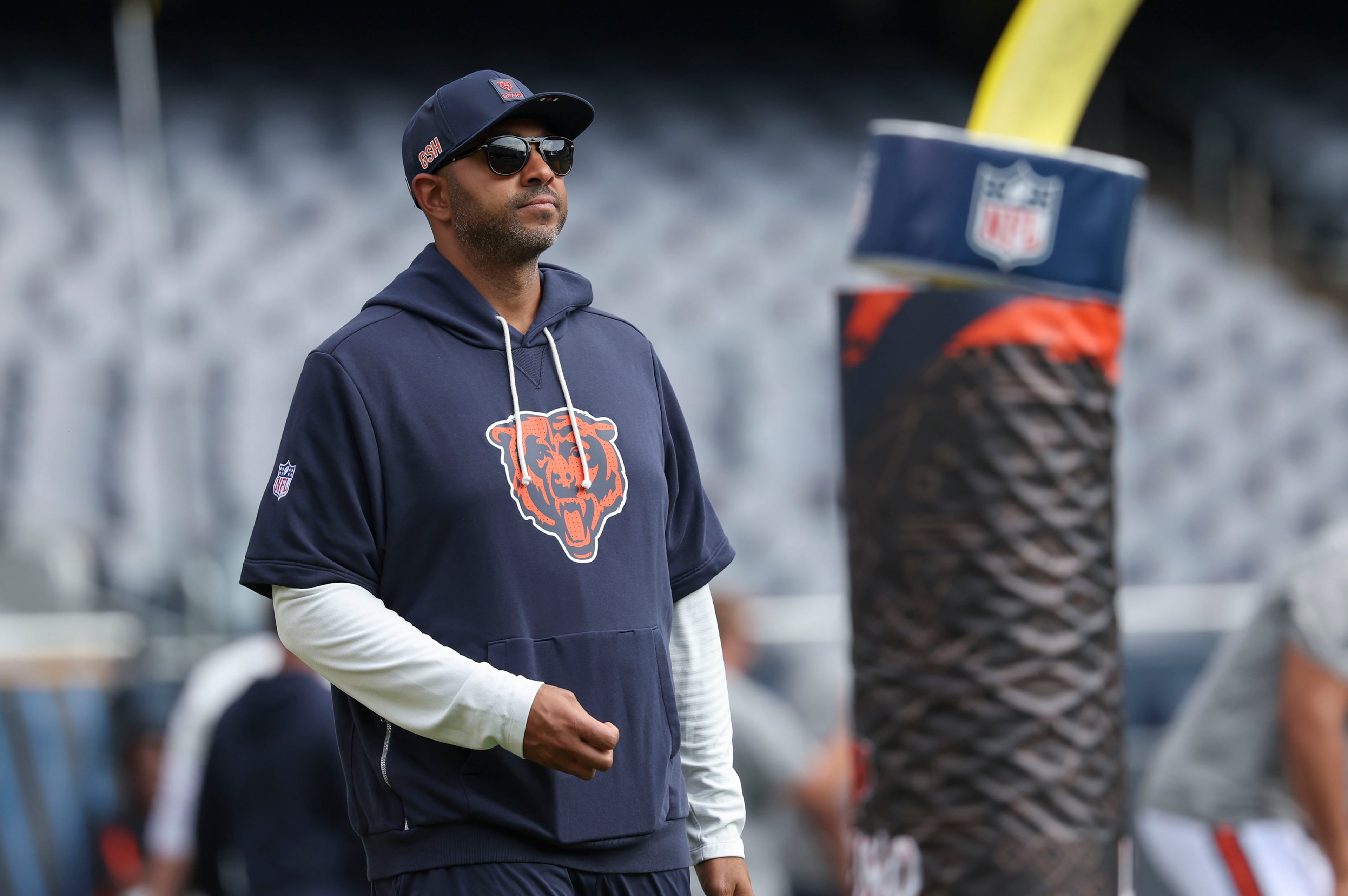Runner or passer? Cam Newton blurs line, NFL rules
The NFL long has protected its quarterbacks, even when the league showed little interest in the health of players at other positions. There is a financial incentive: the quarterbacks usually are the marquee names, they are the highest-paid players on average and they are the most difficult players to replace.
But there didn’t seem to be much protection for Panthers quarterback Cam Newton when the Broncos bludgeoned him during the first game of this NFL season.
The Broncos delivered at least four head shots against Newton. Only one of them resulted in a penalty — and that was offset by an intentional grounding infraction against Newton.
“That was close, for sure,” NBC commentator Cris Collinsworth said while watching a replay of Broncos defensive end Derek Wolfe hitting Newton high after he released the ball. “Cam Newton is now going, ‘I thought we protected the quarterbacks in this league?’”
Newton, a product of Westlake High, is a quarterback. But he’s no ordinary quarterback: he plays like a running back at times and he’s 6 feet 5 and about 250 pounds, nearly as big as some of the linemen who hit him and bigger than most of the linebackers.
Yet there are rules against unnecessary roughness that apply specifically to the quarterback. In the NFL rulebook, the first definition for "players in a defenseless posture" is one "in the act of or just after throwing a pass." It makes no distinction between the player doing so inside or outside of the pocket.
“It is a foul if a player initiates unnecessary contact against a player who is in a defenseless posture,” the rulebook states.
There is little doubt the Broncos hit Newton high as he threw passes or just after he released them. Yet referees could judge “unnecessary contact” to mean something different for Newton than it does for other passers.
The way the Broncos saw it, that’s the way it should be considering Newton’s size and aggressive running.
“The guy is a big defensive end playing quarterback,” Broncos linebacker Brandon Marshall told The Denver Post. “What are we supposed to do? We can hit him in the legs sometimes, but his legs are strong. We’re going to treat him like a running back.”
But, by rule, Newton is not a running back — at least not until he crosses the line of scrimmage and no longer can pass. Yet defenders who don’t tackle him aggressively when he’s passing run the risk of Newton breaking a tackle and suddenly becoming a runner.
“He turns into a running quarterback a lot quicker than most,” Falcons coach Dan Quinn said.
Michael Irvin is among those who believe Newton’s unique size is what causes officials to call hits against him differently. Irvin, a member of the Pro Football Hall of Fame, said on Showtime’s “Inside the NFL” program that the double standard for Newton is “not right.”
“He’s taken hits in the pocket, outside the pocket, crown of your helmet, helmet-to-helmet,” Irvin said. “There’s no doubt in my mind, running or not, had that been a number of quarterbacks in this league those would have been penalties thrown immediately.”
Some Broncos players said the Panthers and Newton share some of the blame for the punishment he takes. Their argument: Newton’s willingness to be a physical runner means defenders must respond in kind, and the Panthers call many designed runs that blur the line between Newton being a passer or runner.
“If he’s not going to slide, then we’re really going to put something on you,” Broncos safety T.J. Ward told The Post. “We’ve seen him limp throughout the game. So, that run stuff — you can’t do that all game with your quarterback.”
So far, though, Newton is on pace to do it more often than any quarterback in NFL history.
There have been 24 seasons in which an NFL quarterback rushed at least 100 times. Newton has done it five times in five full seasons, including a career-high 132 rushes in 2015. He’s on pace for 128 rushing attempts this season.
Quarterback Michael Vick also had 100 or more rushing attempts in five seasons (four with the Falcons and one with the Eagles). But starting in in 2011, when Vick was 31 and had sustained various injuries throughout his career, his rushing attempts declined significantly.
If Newton, 27, continues to be a threat to run with power, he probably can expect to take more vicious hits (referee crackdowns notwithstanding).
Newton has not complained about the hits or his treatment by officials, at least not publicly. Following the Broncos game he said he liked the officiating crew and didn’t believe they purposely left him unprotected.
Still, Newton noted that it’s “not fun getting hit in the head” and said he does talk to game officials about it.
“I try to warn the refs every time I do get hit in the head,” Newton said. “But if the flag is not called, then it’s OK.”



